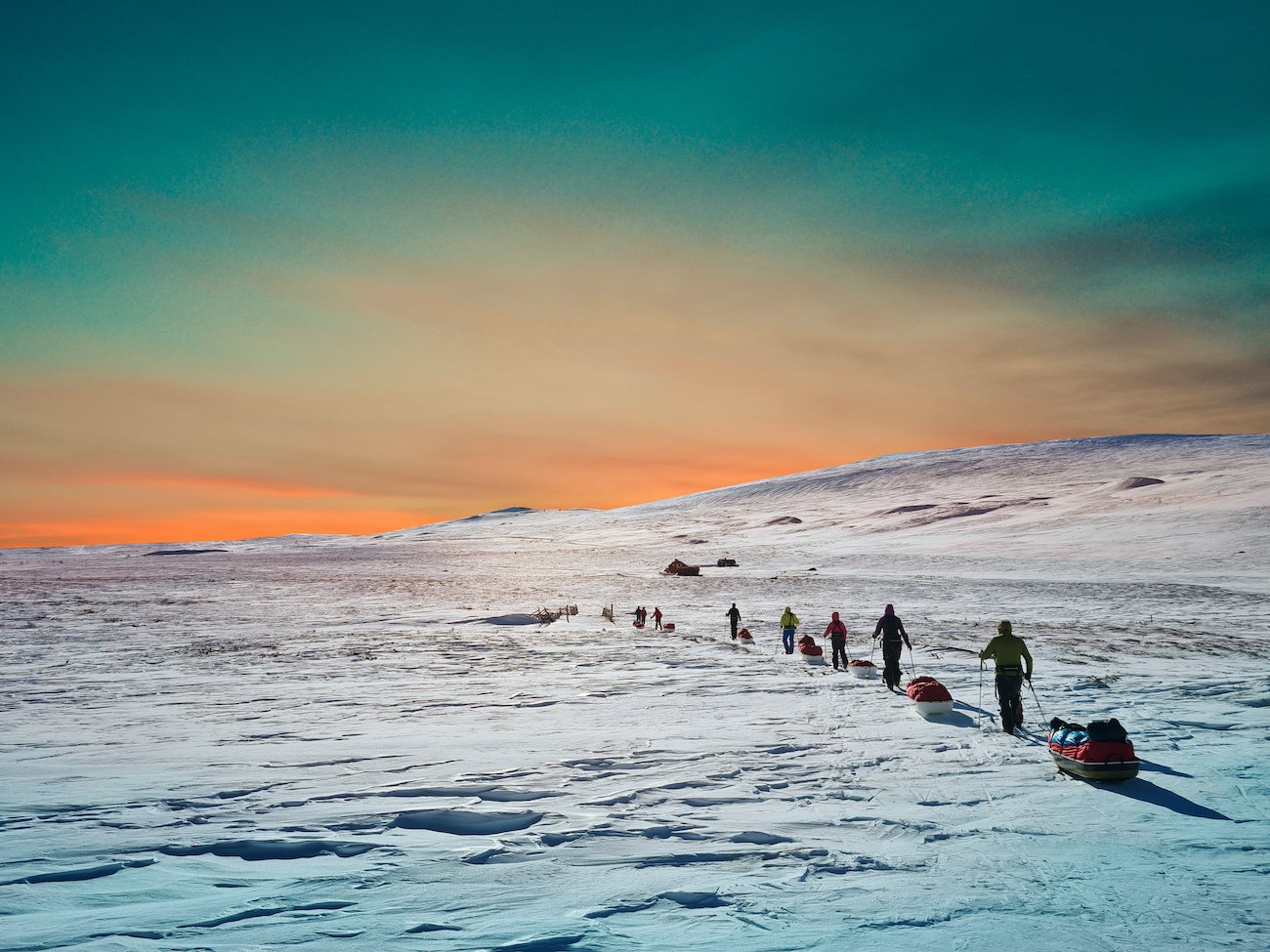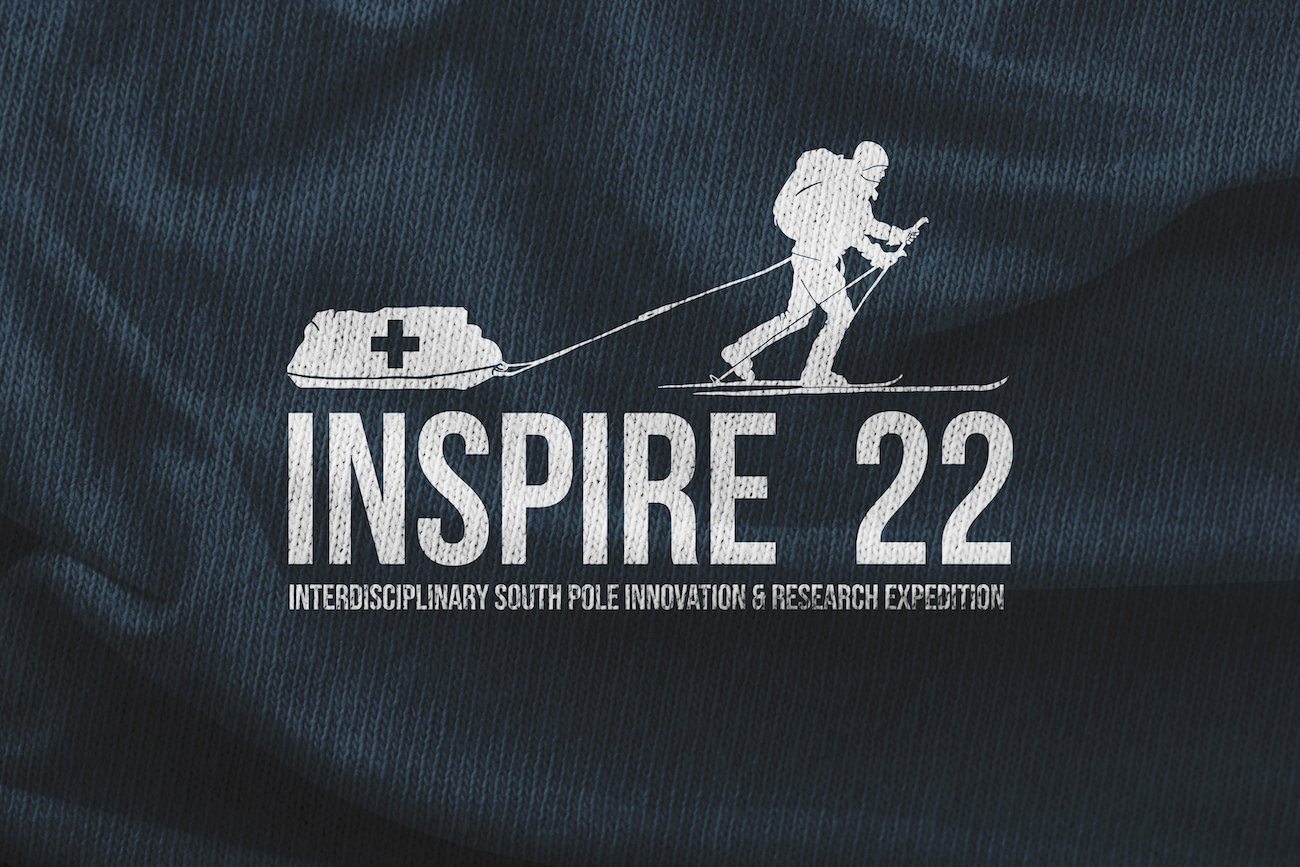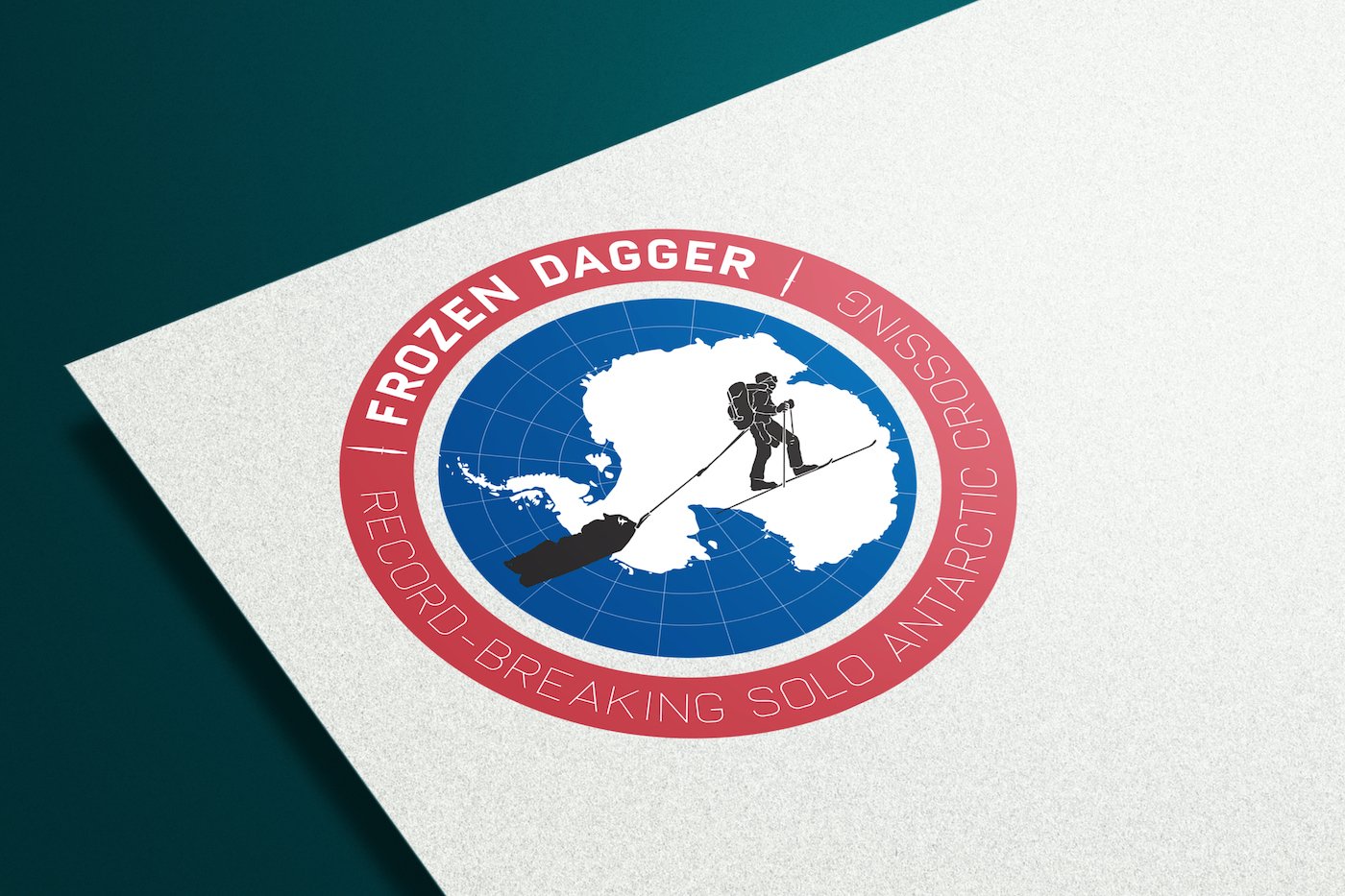
Image credit: Mike Eager. Edited for colour and content by us.
Client: Inspire 22 Antarctic medical expedition
Project: Logo Design
Branding for Doctors that INSPIRED medical innovation
We had the privilege of designing the branding for the 'Inspire 22' expedition, which brought together a diverse group of doctors from both civilian and tri-service backgrounds. Their mission was to investigate the metabolic demands of sustained polar travel as they embarked on a challenging ski journey from the edge of the Antarctic land mass to the South Pole in late 2022.
The INSPIRE 22 Expedition was a ground-breaking endeavour aimed at delving into the metabolic costs associated with prolonged polar travel. The team comprised a mix of guides, doctors, physiologists, a teacher, and an engineer from various backgrounds, all equipped with state-of-the-art techniques and wearable technologies. Their ultimate goal was to enhance our understanding of human metabolism in austere environments, with potential implications for patients in need of similar conditions.
In November 2022, this dedicated team of ten individuals set out on a remarkable feat, covering over 900 kilometres from the 'Messner start' on the Antarctic coast to the heart of the continent—the South Pole. At an altitude of 2835 meters above sea level, they faced gruelling challenges, pulling their supplies behind them for up to 55 days.
It's worth noting that this journey, which took them from the Ross Ice Shelf to the South Pole, had been completed for the first time on December 14, 1911, by Roald Amundsen's team. Tragically, Captain Scott's team also achieved this feat on January 17, 1912, but lost their lives on the return journey due to hypothermia and malnutrition.
Over a century later, the expedition to the South Pole remained an immense physical, mental, and nutritional challenge. While there have been numerous successful attempts by teams and solo adventurers, medical research expeditions in this field have been scarce. In 1992/3, Mike Stroud and Ran Fiennes accomplished the first unsupported Antarctic crossing, and Mike Stroud conducted ground-breaking research on the metabolic toll of polar travel and the associated malnutrition.
More recently, the Global Polar and Altitude Metabolic Research Registry (GPAMS) was established at the Coventry National Institute for Health Research Clinical Research Facility, with support from the Royal Geographical Society and the Mount Everest Foundation. This registry studied 14 subjects, including the SPEAR17 and Ice Maiden expeditions. Collaborative research teams from the Universities of Coventry, Warwick, Edinburgh, and Leeds Becket, as well as the military, have now published five peer-reviewed papers, showcasing the significant advancements in our understanding resulting from this ongoing research.
Realised your own logo needs a refresh?
Check out our affordable logo and brand design services


